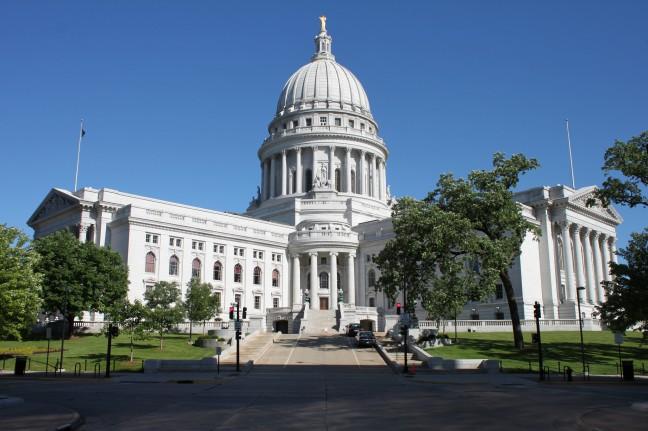As support for right-to-work laws seems to be dwindling in the state Legislature, a study by the Economic Policy Institute has found that states enforcing the laws have lower standards of living in comparison to Wisconsin.
The study compared different economic factors such as household income, median hourly wage and poverty rate, among others between Wisconsin and right-to-work states. Household income in Wisconsin is $55,285 and $49,220 in right-to-work states, which is a significant gap that suggests wages are lower and poverty rates higher in the latter.
Right-to-work is a provision that allows a person to be employed in a private sector firm without having to belong to a union and follow the union’s rules, Barry Burden, University of Wisconsin political science professor said.
Wisconsin State AFL-CIO President Phil Neuenfeldt said right-to-work laws are the wrong step for Wisconsin and that he agrees with the study’s findings. He said Wisconsin’s manufacturing sector and economic organizations are geared toward high performance levels and do not need right-to-work laws to govern them. Moreover, he said the study also highlights the decline in wages and benefits in right-to-work states, reducing the public’s overall income.
“Right-to-work laws affect the general public because more downward pressure is put on wages and benefits as a result and then everybody’s wages and benefits go in the wrong direction, making it a general economic issue,” Neuenfeldt said.
According to the study, the right-to-work laws have also negatively affected the status of other social aspects such as infant mortality rates, teen pregnancy rates and violent crime rates, amongst others. Violent crime rates, for instance, are 370.5 per 100,000 people in right-to-work states in comparison to 237 per 100,000 people in Wisconsin.
Neuenfeldt said the lower incomes in right-to-work states, demonstrated in the study, have negative implications for such aspects of society.
“You want to have a system that offers a hand up for people to get out of poverty so that many of those other statistics start to decline, instead of incline like they do in right-to-work states,” Neuenfeldt said.
However, Burden said there might have been other state-specific factors involved that could have affected these aspects as well, and that it is difficult to generalize it to just the right-to-work laws.
Burden said Wisconsin has higher average levels of education and income than Alabama, which is a right-to-work state. He said while it may be due to the fact it is a right-to-work state, it is likely because each state has different demographics.
Burden said right-to-work laws limit the powers of unions that provide benefits such as workers’ rights to bargain collectively, insurance, pension, workplace safety and negotiable salaries amongst others. This could be another reason for the low living standards seen in right-to-work states. He said to resolve this issue, there should be enough unions to encourage such benefits but not completely overrun non-unionized offices.
“It’s like an immunization wherein you want enough people to be vaccinated so that it protects everyone,” Burden said. “It’s not that every public or private employer has to have a unionized office; it’s that there are enough of them to raise the standards of living.”
Correction: This article previously misquoted hand up as handout. The Badger Herald regrets this error.

















